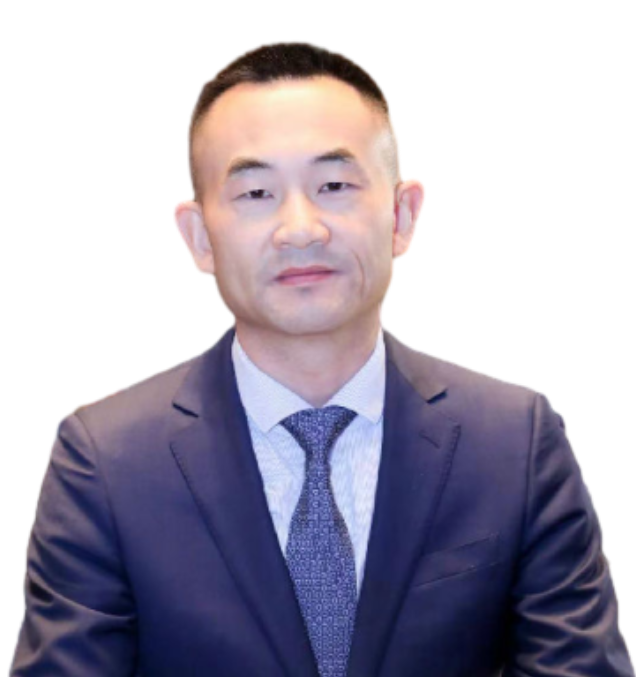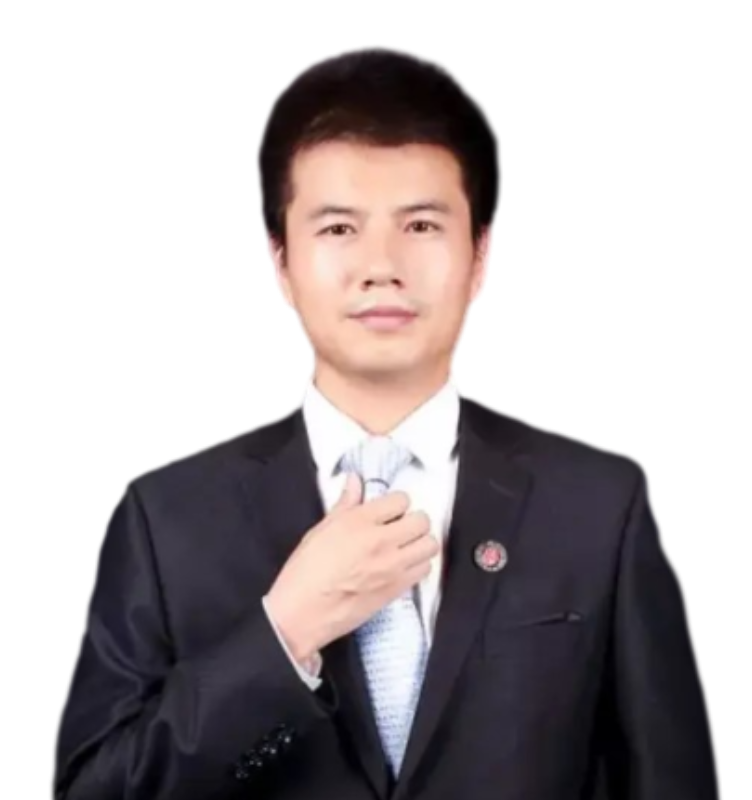

On December 20th, the 4th Haolue Criminal Defense Forum was successfully held at the Beijing office of Haolue Law Firm. With the theme of "Former Criminal Tribunal Judges Discuss Defense - Adjudication Conflicts", this forum was the first in the industry to focus on this topic from the perspective of former judges. More than ten lawyers who had worked in the criminal tribunals of courts in Beijing, Tianjin, Liaoning, Shandong, and other places spoke in turn about defense - adjudication conflicts. Han Xu, a professor and doctoral supervisor at the Law School of Sichuan University, and Zhu Jun, the former chief judge of the Second Criminal Tribunal of the Beijing High - level People's Court, provided comments. Jiang Weijie, the founder of Haolue Law Firm, presided over the forum, which was carried out both online and offline.
Jiang Weijie
Worked at a certain court in Beijing
Li Yuan, a lawyer from Gaowen Law Firm (who worked at a certain court in Beijing), pointed out in his keynote speech that the main manifestations of defense - adjudication conflicts are as follows: First, judges restrict the right of defenders to appear in court and speak. Second, there are disputes over trial procedures. Third, there are differences in the application of laws. The reasons for these conflicts are as follows: First, institutional and systemic reasons. Second, differences in the understanding and application of legal procedures. Third, differences in the determination of case facts. Fourth, the contradiction between efficiency and fairness. Fifth, issues of emotion and communication methods. To avoid defense - adjudication conflicts, we can start from the following aspects: First, at the institutional level, it is necessary to improve the provisions of legal procedures. Second, in terms of training, it is necessary to strengthen the professional quality training of judges and lawyers. Third, in terms of the communication mechanism, an effective communication channel should be established.
Sun Zhenyong, a lawyer from Kangda Law Firm (who worked at a certain court in Beijing), believed that defense - adjudication conflicts should be viewed objectively. He discussed the causes of such conflicts and his expectations for the future. He also proposed solutions to the problem of defense - adjudication conflicts: First, at the level of institutional reform, centering and substantiating the court trial should be a clear direction. Second, at the subjective awareness level of legal professionals, it is recommended that both judges and defenders truly implement the concept of centering and substantiating the court trial in every word and deed of the criminal litigation process.
Wang Yawei, a lawyer from Huixiang Law Firm (who worked at a certain court in Tianjin), believed that the reasons for defense - adjudication conflicts are as follows: First, personality differences between judges and lawyers. Second, poor communication channels between defense and adjudication. Third, the increasingly serious contradiction between a large number of cases and a small number of personnel. Fourth, the "meeting of the three chiefs" and the "internal consultation system" still exist in a disguised form. Fifth, with the improvement of lawyers' status, they begin to strive for more rights. She also said that both the judge as the adjudicator and the lawyer as the defender will have their names written into the judgment document and become part of history. Only by understanding each other and having a positive interaction can the most perfect outcome be achieved.
Wang Yan, a lawyer from Jincheng Tongda Law Firm (who worked at a certain court in Beijing), believed that the basis for the existence of defense - adjudication conflicts is the issue of the neutrality of the adjudicator. Two reasons leading to such conflicts are the non - standard investigation behavior of the investigation organs and the non - serious prosecution content of the public prosecution organs. Three situations where defense - adjudication conflicts are likely to occur are when the judge does not recognize the defender's status, does not approve the lawyer's application, and does not guarantee the lawyer's right to speak. Four suggestions for alleviating defense - adjudication conflicts are that judges should understand the demands of defenders, judges should exchange understanding through guaranteeing rights and time, defenders should also understand the demands of judges, and defenders should seize the right opportunity for effective defense.
Zhu Xiping, a lawyer from Zhide (Shanghai) Law Firm (who worked at a certain court in Beijing), believed that the ideal isosceles triangle does not truly exist, and judges are not absolutely neutral third - parties. Judges are not completely detached and have their own interests to consider, such as assessments, indicators, and trial time limits, which may lead to the deformation of prescribed actions. Amending the Criminal Procedure Law is a good way to solve the conflict, but the following three points should be achieved: First, balance the relationship between fairness and efficiency. Second, grasp the main contradiction, that is, the contradiction between the people's growing infinite demand for fairness and justice and the limited high - quality judicial supply. Third, adhere to seeking truth from facts. Before implementing major reform measures, it is necessary to conduct careful research on how much grain can actually be produced per mu of land.
Li Ningzhi, a lawyer from Zhongwen Law Firm (who worked at a certain court in Liaoning Province), believed that the issue of legal application is not the main cause of defense - adjudication conflicts. Superficially, the conflict lies in procedural issues, but in fact, it is the determination of case facts. The root cause of defense - adjudication conflicts does not arise in the court but is concentrated and erupted in the court. He also summarized several issues that are likely to trigger defense - adjudication conflicts, including: 1. The issue of excluding illegal evidence; 2. The issue of applying for witnesses to appear in court; 3. The issue of applying for appraisers and expert assistants to appear in court; 4. The issue of jurisdiction; 5. The issue of designated residential surveillance; etc.
Zhang Lijian, a lawyer from Duan and Duan (Jinan) Law Firm (who worked at a certain court in Shandong Province), believed that defense - adjudication conflicts should be treated correctly, and the responsibility should not be casually attributed to defenders or judges. From the lawyer's perspective, most of the cases with defense - adjudication conflicts involve lawyers from other places, mainly manifested as one - time defense, performative defense, and active confrontational defense. Lawyers urgently need to improve their communication and persuasion abilities, and differences in criminal professional capabilities also contribute to the conflict between the two sides. From the judge's perspective, arrogance, prejudice, arbitrariness, a lack of patience to listen to opinions and suggestions, an inherent and stubborn legal logic and way of thinking, and a lack of overall arrangements for pre - trial and in - court work of specific cases are all reasons for conflicts with lawyers.
An Yanzeng, a lawyer from Jiawei Law Firm (who worked at a certain court in Beijing), believed that the fundamental reason for defense - adjudication conflicts is that the judicial concept centered on trial has not been effectively implemented, and the handling of criminal cases has not been truly presented in the court trial. The long - advocated substantiation of court trials has not been truly implemented. Individually, the main reasons are that judges have too much discretionary power and exercise their litigation command power arbitrarily. He also believed that the understanding of the situation of "having other relationships with the parties in this case that may affect the fair handling of the case" is likely to lead to recusal conflicts, and the public security organs' abuse of jurisdiction regulations to illegally file cases with little or no connection to the local area but creating connections is likely to lead to jurisdiction conflicts.
Jiang Weijie, a lawyer from Haolue Law Firm (who worked at a certain court in Beijing), believed that defense - adjudication conflicts often occur in procedural issues rather than substantive issues. After a case enters the court, defense - adjudication conflicts are likely to occur in the following 8 issues: 1. The issue of entrustment. 2. The issue of copying synchronous audio - visual recordings. 3. The issue of jurisdiction and recusal. 4. The issue of excluding illegal evidence. 5. The issue of witnesses appearing in court. 6. The issue of speaking in court. 7. The issue of the second - instance court session. 8. The issue of reviewing case files in retrial. Lawyer Jiang Weijie also said that the court's decision - making mechanism for cases is a four - layer three - dimensional one. First, it is decided by the judge; second, it is decided by the court itself; third, it is decided by the superior organ; fourth, it is decided by the system. Understanding this four - layer three - dimensional decision - making mechanism deeply will help understand judges, avoid high expectations and deep resentment, and prevent intense conflicts.
In the comment session, Teacher Han Xu and Teacher Zhu Jun carefully commented on the wonderful sharing of the above keynote speakers.
Han Xu
Worked at a certain court in Henan Province
Teacher Han Xu defined the nature of defense - adjudication conflicts, analyzed their characteristics in terms of subject, field, form of expression, conflicting matters, and harm, explored the causes of defense - adjudication conflicts from five aspects, put forward seven suggestions for improving such conflicts, and pointed out how lawyers can avoid defense - adjudication conflicts: All applications should be submitted in writing and clearly state the specific content; abide by courtroom discipline and obey the judge's command; if the judge's litigation command is considered illegal or inappropriate, it can be raised after the court session to obtain "sentencing compensation" or "sentencing preferential treatment"; if the opinion is not accepted, an appeal can be filed on the grounds that the procedural violation in Article 238 of the Criminal Procedure Law may affect judicial fairness; maintain a rational and peaceful attitude and persuade the judge with legal provisions and principles.
Zhu Jun
Worked at a certain court in Beijing
Teacher Zhu Jun proposed that there should be no conflicts between defense and adjudication. He believed that the word "conflict" is inappropriate, and it should only be regarded as a difference. The litigation status of the two sides is unequal, and their rights and obligations are also inconsistent, similar to the relationship between athletes and referees. There must be a commander in the courtroom, and the judge is the final adjudicator and decision - maker of the case. Defenders and judges should understand, tolerate, and respect each other, put themselves in each other's shoes, communicate fully, and reduce extreme conflicts.
In the future, Haolue Law Firm will continuously deepen its professional strength and brand influence in the field of criminal defense. Taking the Haolue Criminal Defense Forum as a platform, it will focus on the forefront of practice, explore new theoretical knowledge together. We welcome colleagues to get to know, participate in, and jointly build Haolue Criminal Defense.


























.png)
.png)







